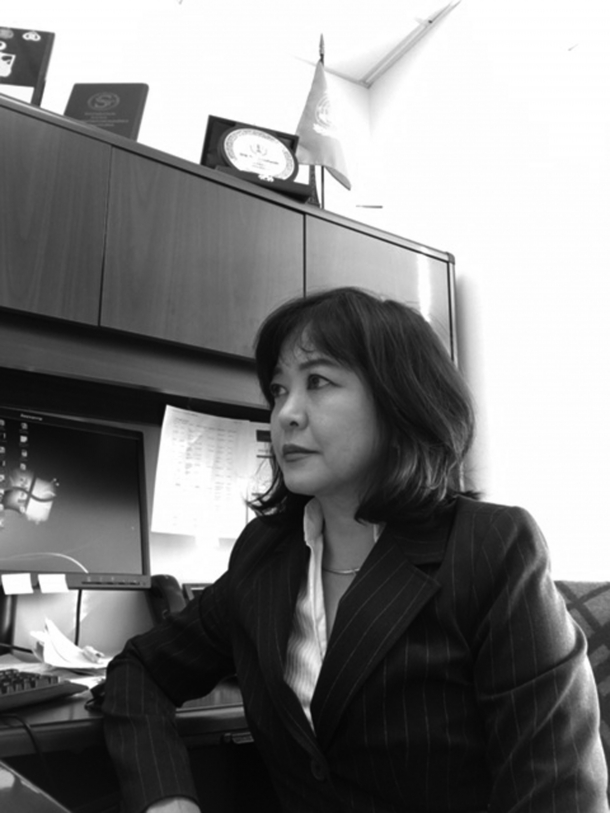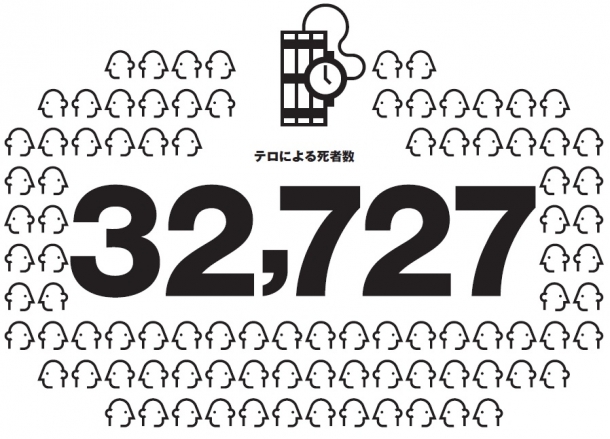“Now is the time for us to think about how to give a helping hand to those in need.”

Sue Takasu, Senior Legal Officer at United Nations CTED
After graduating from Waseda University’s School of Law, Takasu became a public prosecutor in 1995 and was sent to the United Nations Counter-Terrorism Executive Directorate (CTED) in 2005 by the Ministry of Justice. She left her position in 2010 to work full-time for the United Nations. Her responsibility includes visiting various countries and meeting their representatives.
According to a report published on June 2015 by the U.S. Department of State, total fatalities from terrorist attacks in 2014 were 32,727, an 80% increase compared to the previous year. Such attacks occurred in 95 countries, and the Islamic State claimed 6,286 lives.
32,727
Terrorism is gaining momentum. So many complex, personal and social factors intertwine as the reason why, including conflicts between different ethnic groups and religions. Out of these factors, I believe that the deep-rooted causes are poverty and political corruption.
Even if people tried to correct society’s injustice such as income inequality and discrimination, finding a way to address corrupted governments would hopeless. This may be difficult to imagine for those living in Japan, but in different parts of the world, there are many countries which do not hold elections at all. Even if there is one, it is not difficult for a corrupt political system to manipulate the results. Furthermore, fraudulence is not only limited to politicians, but it is prevalent among judges and police officers in the judicial branch and law enforcement agencies as well. Depending on the country, a criminal conviction could be overruled with bribery.When living in this kind of society, the idea of turning to violence called terrorism, out of hopelessness and despair, in order to realize a distorted utopia is not entirely incomprehensible.
Fortunately, factors which could trigger terrorism such as religious and ethnic conflicts, major economic inequality, poverty and government corruption are not major issues in Japanese society, and the possibility of domestic terrorism is unlikely. For these reasons, many Japanese people tend to feel indifferent towards terrorism and believe it is something that is happening elsewhere (Although there were incidents such as the Tokyo Subway Sarin Incident and Japanese being killed by IS). However, we must prepare ourselves for the Tokyo Olympic year 2020, which could be a favorable time for terrorists to plan attacks in Japan.

Many people in countries abroad face and are distressed by terrorist attacks. Now is the time for us as Japanese to think about how Japan could contribute to the global community and give a helping hand to those in need. Japan could possibly apply its lessons learned, when followers of the cult Aum Shinrikyo carried out the subway sarin terrorist attack, on how to break free from mind control. Moreover, this is a great time to reconsider Japan’s refugee policies. I believe it is meaningful to think of ways of implementing flexible policies to save refugees in dire straits while holding open discussions among the government, corporates, students and the the general public.
Japan’s contributions to the world has mainly been monetary until now. Yet, with the global situation having changed so dramatically, serious discussions starting at the university level on what we can do aside from providing financial assistance are encouraged. Finally, I hope the country will reshape itself for the better, little by little.







